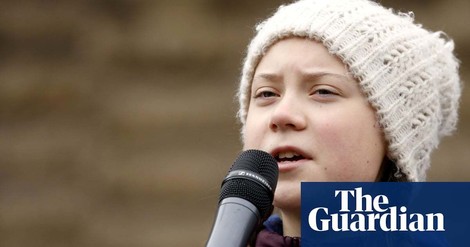Your podcast discovery platform
Curious minds select the most fascinating podcasts from around the world. Discover hand-piqd audio recommendations on your favorite topics.

piqer for: Globalization and politics Global finds
Sezin Öney, originally from Turkey, is based in Budapest and Istanbul. She her journalism career as a foreign news reporter in 1999 and she turned into political analysis as a columnist since 2007. Her interest in her main academic subject area of populism was sparked almost decade ago; and now she focuses specifically on populist leadership, and populism in Turkey and Hungary. She studied international relations, nationalism, international law, Jewish history, comparative politics and discourse analysis across Europe.
Striking For The Future: Generation Z Demands Action Against Climate Change
On 20 August 2018, Swedish student Greta Thunberg was supposed to start school after the summer break. But Thunberg opted for sitting in front of the Swedish Parliament’s main building in Stockholm. She had a cardboard saying “School Strike for the Climate” in Swedish and a stock of leaflets stating her intentions.
By September 2018, Thunberg pledged to stand outside of Swedish Parliament every Friday until the Swedish politicians move towards an agreement to keep temperature rise below two degrees Celsius. Her proposal matches that of the France's Paris Agreement—the agreement within the United Nations Framework Convention on Climate Change seeking to combat climate change and its subsequent effects.
By now, Thunberg's initial sign has been translated into dozens languages across more than 100 countries, and has generated thousands of other banners. On 15 March 2019, the biggest Friday strike yet prompted tens of thousands of students to walk out of lessons and demand the politicians urgently act on the issue in more than 1,650 cities around the world. Thunberg herself has been nominated for a Nobel Peace Prize by a group Norwegian parliamentarians.
In this episode of the Guardian's "Today in Focus", 16-year-old Thunberg explains to the newspaper's global environment editor, Jonathan Watts, how the strikes began and where she thinks the strikes are headed.
To give credit where credit is due, the Guardian has been one of the best media outlets in covering the environmental news in general, and the aforementioned Friday strikes in particular.
This podcast is an ideal medium both to listen to Thunberg's own views and to follow up the evolution of Friday strikes: "Friday for Futures".
Stay up to date – with a newsletter from your channel on Global finds.
